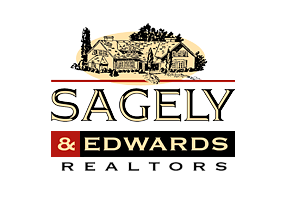
Visit Mobile Site

Find out how much your home is worth!
It's free, simple & easy.
Stay up to date with the latest real estate news and special promotions!
Subscribe to our newsletter to get up-to-date info on the latest housing market conditions for this area.

There are times when the growth of the real estate industry has drawn the nervous energy of local or national media expecting a downfall after a period of prolonged growth. There are some serious flaws in the logic behind expecting a burst in the real estate bubble nationally and during any period of prolonged growth, you as a real estate investor should not panic in the expectation that a market fall will ruin your investment.
Of course, there are exceptions to every rule and there are times when a very localized market depression (such as the downturn of an area neighborhood) can profoundly affect a real estate investment. Extrapolating things like that into a national concern, however, ignores the fact that there really is no national real estate market.
The overall picture of the real estate market that the media uses to describe economic indicators is really made up of thousands of small real estate markets. Any time that a market is spread over that great of an expense, the chances of every tiny market failing at the same time are extremely slim. That is indeed what would be necessary for a national real estate market crash, making such an eventuality extremely unlikely.
To call something a “crash” takes an extreme drop off over a short period of time, something that would be difficult to accomplish in any real estate market. Pieces of information like population growth, new construction statistics and other economic measures can forecast a general trend for any real estate market well in advance.
Certainly, real estate markets will downturn from time to time, but no downturn happens in such a short period of time so as to trap investment money. Generally speaking, you can always get out if the writing is on the wall and that fact separates real estate markets from something like the stock market that can crash more easily.
The nature of real estate investment also provides some insulation behind any kind of dip in the real estate market. For those holding properties over a long period of time as investment opportunities, if a dip does happen in the local real estate market, the long term nature of your investment dictates that you will hold it long enough to see an upturn in the market. Real estate markets rarely stay down for over a decade and for a long term investment, that storm can certainly be weathered.
For short term flips, often the atmosphere of the local real estate market will not have time to change by the time you are looking to sell off your investment project. Fixer-upper properties and the like will often take a few months when the arrival of a market depression can take at least that long to show up.
Early economic indicators will tell you what the market may be like in a few months time and that is certainly something to look at when getting involved in a short-term investment. Simply put, by the time a market depression could affect your short-term investment, you’ll probably have sold it off.
Of course, getting involved in a bad investment will nullify a lot of these positive aspects of long-term and short-term investments, so do not take this advice to mean that any investment will withstand market fluctuations. If you buy an investment property with a less-than-stellar cash flow record, relying on an upturn in the market can leave you waiting for a long enough time so as to drain your funs and bust your investment.
When deciding on an investment, you need to understand the fundamental positives and negatives of an investment and when your property is a sound investment to begin with, it will generally withstand the fluctuations of the local market. At the very least, you now know that when national media talks about the real estate market, you can rest assured that the word “crash” is not going to follow.